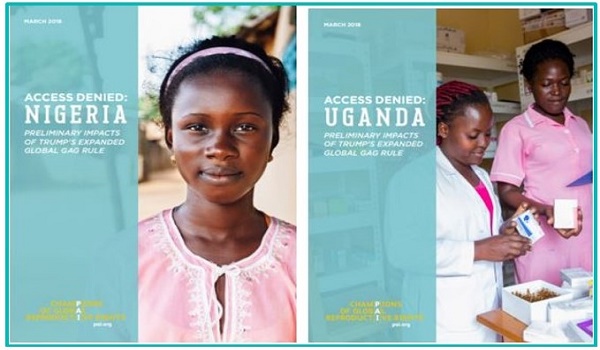
For more than a year now, the US government has imposed and expanded the Global Gag Rule. It now applies to all US global health assistance, drastically magnifying its potential harmful effects on women and communities around the world. PAI has a long history of documenting the impact of the Global Gag Rule on the health and rights of women and girls. To this end, they conducted two fact-finding trips in the autumn of 2017 – one to Kampala and the other to Abuja. They interviewed more than 30 advocates, services providers, government officials and donors in the two countries.
A picture of the most severe effects on sexual and reproductive health has already begun to emerge. These impacts include increasing commodity insecurity; chilling effects on advocacy for safe abortion and post-abortion care services; the dismantling of referral networks between compliant and non-compliant organizations; heavy administrative burdens for organizations; the disruption of donor coordination; and emboldening of opponents of reproductive health and rights. All compounded by the uncertainty of future US funding for global health.
In Nigeria, the Global Gag Rule is overburdening their under-funded public health sector and undermining reproductive health and overall health goals. Combined with funding cuts it is also hampering the work of UNFPA, the chief agency responsible for promoting sexual and reproductive health, including in humanitarian settings.
In Uganda, the Global Gag Rule is restricting contraceptive access, especially for hard-to-reach and marginalized communities, such as young people. Already, the policy has generated an atmosphere of fear and apprehension, including in critical activities such as training on the use of misoprostol for treating post-partum haemorrhage, and for medical abortion.



